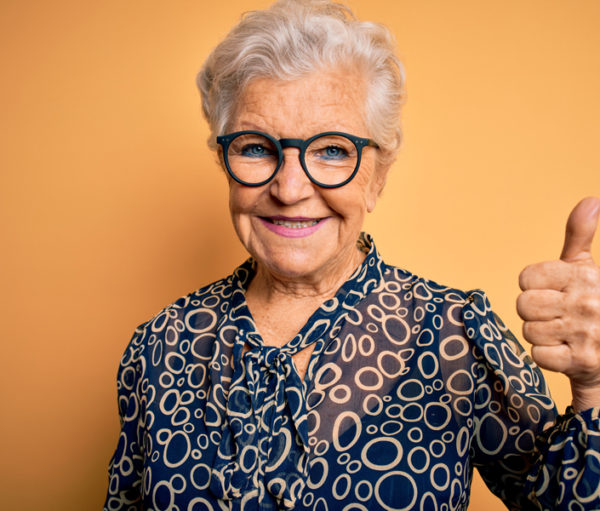Resolve to Fight Ageism in 2021

If you’re still working on your New Year’s resolutions, here’s one that is especially important this year! The pandemic drew a lot of attention to the problem of ageism in our culture. Senior rights advocates called out events such as disparaging remarks about COVID-19 “only” being dangerous for seniors, as well as suggestions by some that the health and lives of older adults weren’t as important as opening up businesses.
A study conducted by the University of Michigan in July 2020 found that 80% of older adults report experiencing ageism. “Everyday ageism is part of American culture and one of the most common and socially condoned forms of prejudice and discrimination. There is no doubt that it harms the health and wellbeing of older adults,” said study author Julie Ober Allen, Ph.D. “In addition to addressing everyday ageism in general, we as a society should be especially careful about how ageist prejudices and stereotypes affect our response to the massive public health challenges of the ongoing pandemic.”
“Ageism can take many forms,” reported Alana Officer of the World Health Organization. “These include depicting older people as frail, dependent, and out of touch in the media, or through discriminatory practices such as health care rationing by age, or institutional policies such as mandatory retirement at a certain age.”
If fighting ageism because it’s the right thing to do isn’t motivation enough, here are four more reasons to avoid age-related stereotypes:
Ageism harms the overall health of older adults. Experiencing discrimination on a regular basis raises the level of the stress hormone cortisol in the body, putting seniors at higher risk of heart disease, respiratory problems, depression and disability from numerous causes. Studies even show that experiencing ageism shortens life by up to a decade!
Ageism raises the risk of dementia. Prof. Becca Levy of the Yale School of Public Health (YSPH) has done much pioneering work on the effects of age discrimination. According to Levy, “We believe the stress generated by the negative beliefs about aging that individuals sometimes internalize from society can result in pathological brain changes.” Levy found that even people with a genetic risk of Alzheimer’s disease are 44% less likely to develop dementia if they have positive beliefs about aging.
Ageism can lead to a cycle of decline. Studies show that seniors who internalize the negative messages of ageism are less likely to make healthy lifestyle choices, such as remaining physically active and socially connected. This increases their risk of disability, making them feel all the worse. Assuming that older adults are weak and dependent can be a self-fulfilling prophecy.
Ageism can harm the future health of people who are young today. Are young people immune to the damaging effects of ageism? Far from it! Prof. Levy and the YSPH team studied 40 years of data on a large group of people, and found that those who held negative stereotypes about older adults were less likely to be healthy in their own later years, instead “maturing into the very people they have been unkindly caricaturing.”
So in 2021, let’s raise awareness of ageism, and take these steps to fight it:
Check our own attitude about aging. How do we talk about seniors? About our own aging? Do we make negative jokes about older adults that reinforce stereotypes? Do we use terms like “geezer” and “old coot”? Do we devalue people who are living with age-related physical and cognitive challenges? Even when you’re purchasing a birthday card, avoid the tired old “over the hill” clichés.
Seek out positive images about aging. A recent study found that images of aging in top-grossing movies are largely negative. “Seniors are rarely seen on screen, and when they are, they are ridiculed,” said Dr. Stacy Smith of the University of Southern California. “When did we become a society that is comfortable with subtle and stigmatizing stereotypes about a group that have long served as the pillars and stalwarts of our communities?” Instead, look for books and movies that portray the joys and benefits of being older.
Don’t be afraid to “call out” ageism. Today more people are challenging each other to consider their biases. If you hear someone making an ageist comment, bring it up just as you would a racist remark. Chances are the person has never really examined their own prejudices. We can help younger people—and ourselves, if we are older—realize that growing older is to be gratefully accepted and treasured with good care.
Source: IlluminAge


